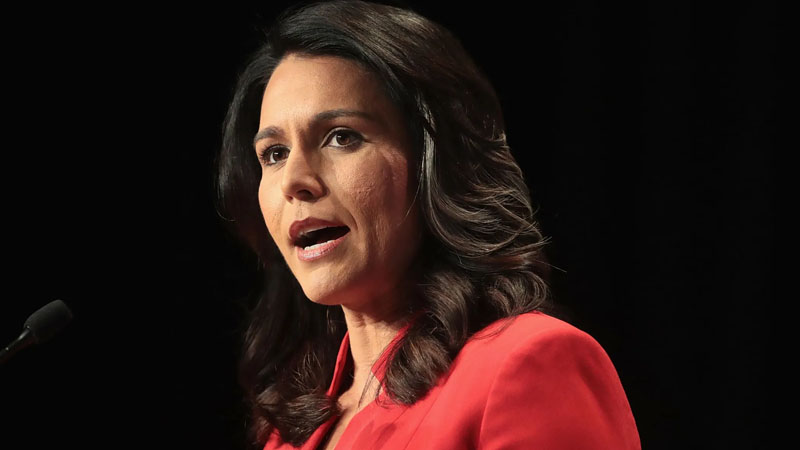Tulsi Gabbard Faces Bipartisan Resistance Over Section 702 Stance in DNI Confirmation Battle

(Scott Olson/Getty Images)
Former Hawaii Congresswoman Tulsi Gabbard is facing significant opposition in her bid to become President-elect Donald Trump’s director of national intelligence (DNI). Senators from both parties are raising concerns about her long-standing opposition to Section 702, a critical surveillance program that allows the intelligence community to monitor electronic communications for national security purposes.
Gabbard, known for her controversial views and past support for anti-Western regimes, addressed the issue last week. She claimed her position on Section 702 has evolved due to recent reforms aimed at protecting Americans’ civil liberties.
“Section 702, unlike other FISA authorities, is crucial for gathering foreign intelligence on non-U.S. persons abroad. This unique capability cannot be replicated and must be safeguarded to protect our nation while ensuring the civil liberties of Americans,” Gabbard said, according to CNN. “My prior concerns about FISA were based on insufficient protections for civil liberties, particularly regarding the FBI’s misuse of warrantless search powers on American citizens.
Significant FISA reforms have been enacted since my time in Congress to address these issues. If confirmed as DNI, I will uphold Americans’ Fourth Amendment rights while maintaining vital national security tools like Section 702 to ensure the safety and freedom of the American people.”
However, her claims are complicated by statements she made earlier this year. In an interview on The Joe Rogan Experience, Gabbard expressed strong opposition to Section 702 and criticized the very reforms she now supports, arguing they worsened the program.
“The thing that the TikTok ban was lumped together with was the bill that would reinstate or extend the FISA authority … for another two years,” Gabbard said in the interview. “Section 702 of FISA gives our government the authority to surveil foreign actors, essentially, to try to identify terrorist threats.
But part of that is they have the ability to capture all of the conversations — if you talk to somebody in another country that they’re interested in, they can then go in and capture all of your information as an American citizen. And they can do this without a warrant.”
Gabbard further criticized recent legislative changes, claiming, “It took an already bad problem and made it many, many times worse.” These conflicting positions have intensified skepticism among lawmakers, complicating her confirmation prospects. As Gabbard seeks to lead the nation’s intelligence apparatus, her shifting stance on Section 702 raises questions about her commitment to balancing national security and civil liberties.


